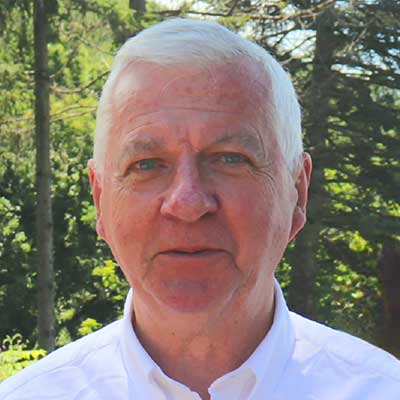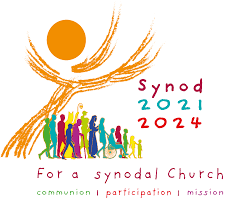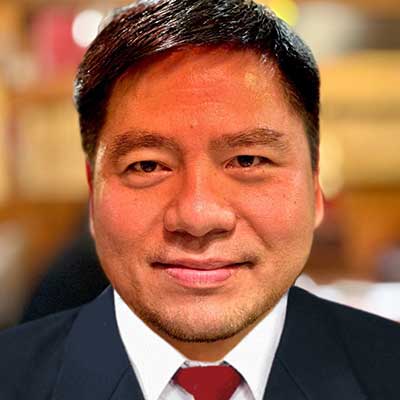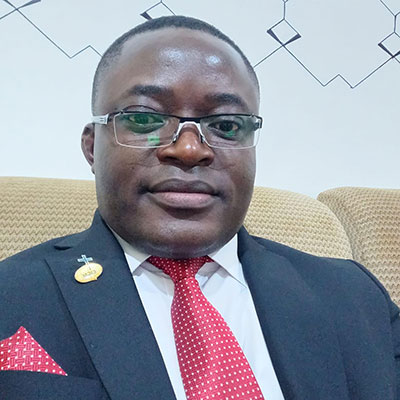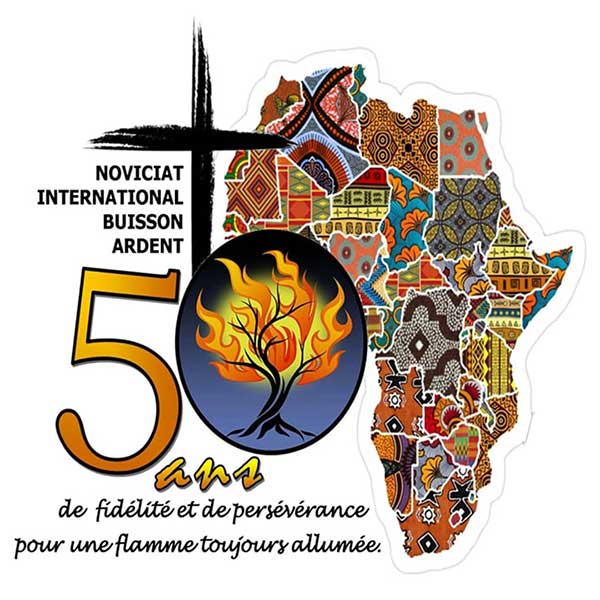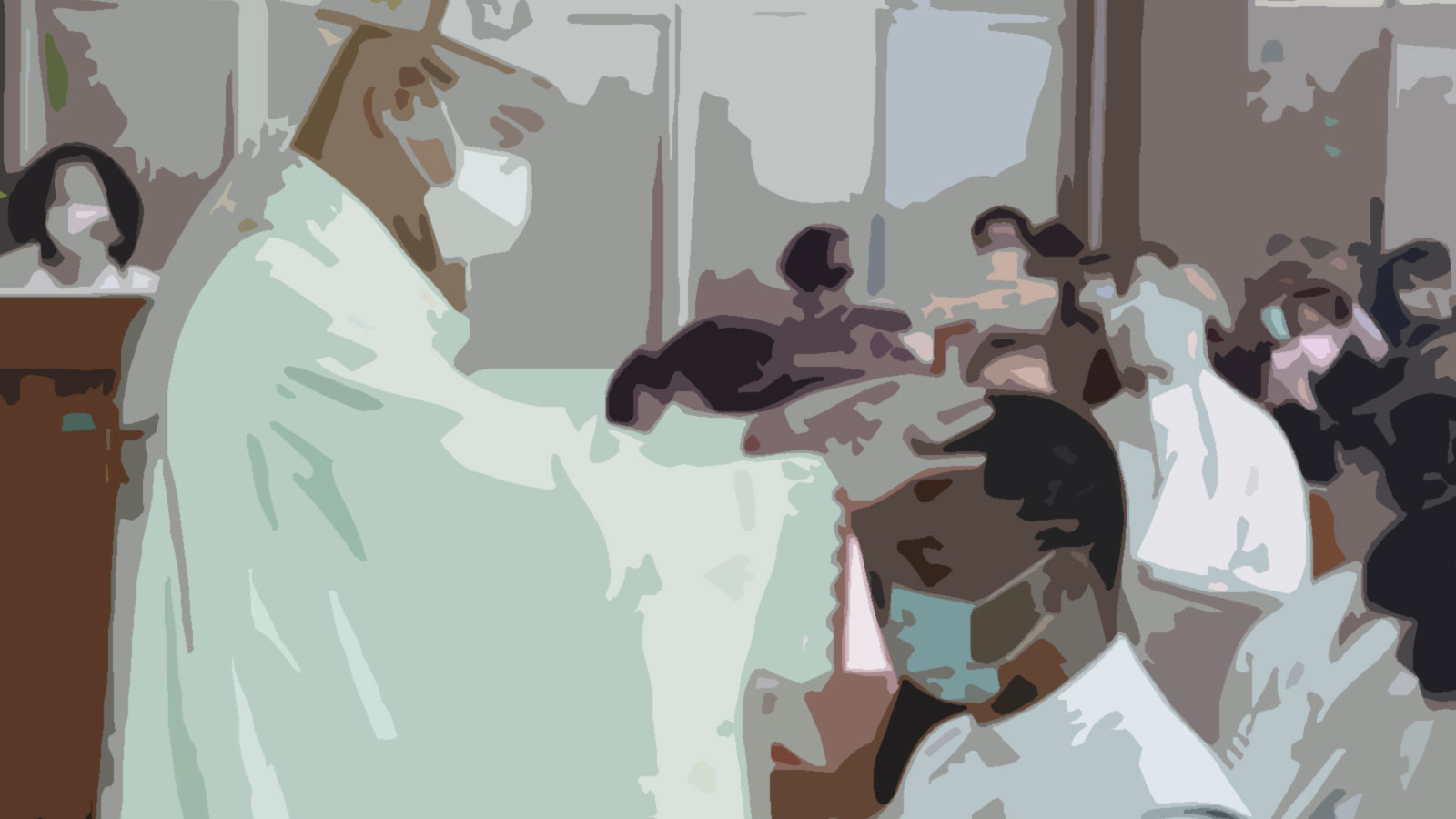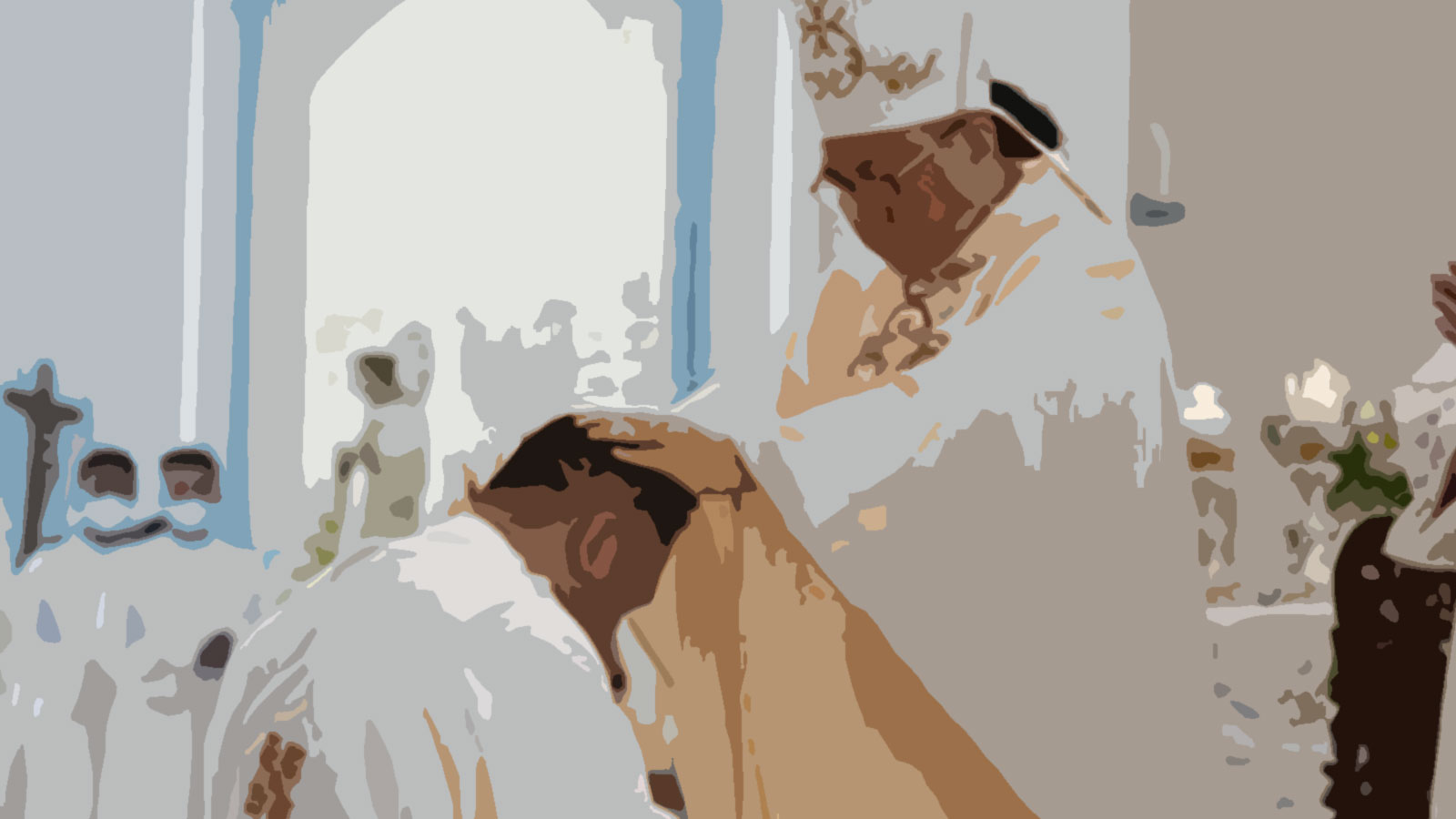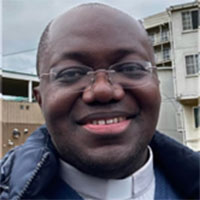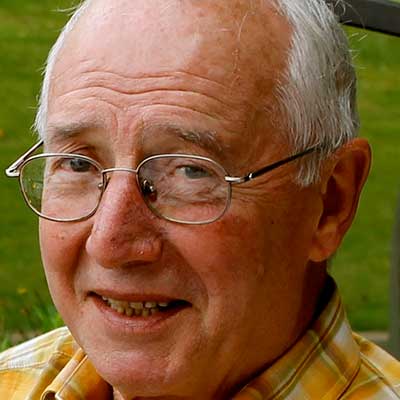WYD 2023 Portugal - A stage on the road to Heaven: Testimonies of young pilgrims accompanied by CICM confreres
- IN THE FRONTLINE
- Hits: 2373
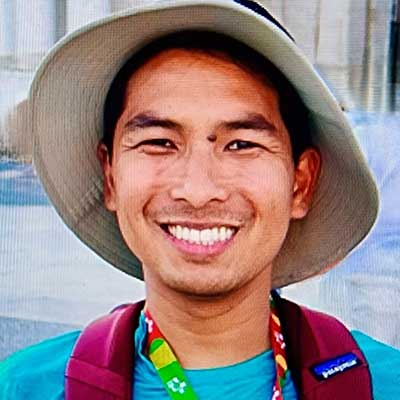 Eric Michael Imbao, cicm
Eric Michael Imbao, cicm
Missionary in the USA
It has been months since pilgrims from the World Youth Day in Lisbon, Portugal, returned home. Yet everything we have seen, heard, and witnessed on the pilgrimage still feels unreal. Undoubtedly, it left an indelible mark in our hearts and faith that we will carry for the rest of our lives.
A week before WYD, our pilgrim group was blessed to visit holy sites in Rome and Italy. Visiting the catacombs of the first Christians and first martyrs filled us with deep inspiration. We also visited the four major basilicas in Rome, with special access permission to the Necropolis or the tomb of St. Peter (underground Pope’s grottos at St. Peter’s Basilica). The group immensely enjoyed our visits to saints like St. Ignatius of Loyola, St. Francis, Blessed Carlo Acutis, and St. Claire in Assisi, Italy.
Arriving in Portugal, we spent a day in Fatima, visiting the houses of the three little children and walking meditatively at Via Sacra in Aljustrel (Shepherd Way). We also had the opportunity to visit all the apparition sites of the Our Lady of Fatima. These were meaningful and unforgettable blessings that our group would carry in our hearts.
According to the Vatican News, the week-long event was an electrifying tapestry of encounters, reflections, and prayers by young people from around the globe. United by the theme "Mary arose and went with haste" (Luke 1:39), participants answered Pope Francis’ call to come together and explore the depths of their faith and spirituality amidst diversity. These pilgrims rose to the challenge of the pilgrimage and went with haste to be messengers of joy.
The journey itself is filled with ups and downs, and one word that can sum it all up is – “challenging”. When faced with challenges and difficulties in accomplishing a task, there is also much to learn and gain. It can be likened to the principle of life: where there is much to gain, there will be pain. Or, putting it in another way, no pain, no gain. Our pilgrim group gained so much from the sacrifices that our group had to make for the WYD experience. From the long walks in the heat of the day to sleeping on gym floors, eating unfamiliar food, having nights of less sleep, and talking to people who speak a different language, these are all life-changing and impactful challenges that made our experience truly unforgettable.
Our pilgrims are happy to share their testimonies here:
“One thing that will stay in my mind is the joy I’ve felt meeting people who are passionate about God. We sang and danced practically anywhere. We found ourselves exhausted and tired. But instead of being impatient and complaining, our group remained joyful at every moment. I believe we should take life the same way.” - Fr. Eric Michael Imbao, CICM.
Among the pilgrims, Anthony Pablo (18 yrs. old), a parishioner of Maria, Reina De Las Américas in Mount Olive, cherished the memory of being in the presence of Pope Francis. He shared the message he took to heart: "No tengan miedo, tengan coraje" – "Don't be afraid, have courage." For him, these words meant embracing God's path without fear. Karen Hildalgo (29 yrs. old), a parishioner of St. Mary of the Angels in Mount Olive, said, “The sheer sight of thousands of faithful gathered never failed to inspire awe within her. She mused, this time, I thought I was ready not to be surprised, but it felt like starting over again." For Fatima Gloria Mesa-Romero (17 yrs. old) from Sta. Teresa, Beulaville, “Seeing thousands of people travel all over the world to worship one God is so amazing. I am not alone in the Catholic Church. There were thousands of us sharing the same faith.”
Edwin Castaneda (20 yrs. old) from St. Catherine of Siena in Tarboro said, “I walked into WYD not knowing what to expect. I knew I wanted to grow in my faith, and I felt like I did tremendously! I enjoyed the Masses, meeting different people, and especially learning about my faith in ways I wasn’t sure about.” “The moment that will stick with me forever would be when Pope Francis said, “Don’t be afraid.” “Those three simple words meant so much more to me because I feel like a teen who was trying to grow in my faith. I felt afraid. I was afraid to speak about my faith. I was afraid to acknowledge it. Now, I feel like instead of avoiding my faith and looking at the other way, I should embrace it! I should never be afraid to share my faith!”
Edwin added that when things get hard, he can look back at this pilgrimage as a reminder that he encountered many obstacles, so there was nothing impossible that he was not willing to try. He added: “I think life gets difficult sometimes, and we often lose ourselves from those difficulties, whether it’s our faith or our passion for the Church. I believe the Lord chose each of us in that group to be there, so it’s our responsibility to share those experiences with others and encourage them to strengthen their faith in God or maybe try to encourage them to go to the next WYD!”
Other pilgrims shared their thoughts, too:
“When it was time to sing, we sang; when it was time to dance, we danced. And when it was time to pray, we prayed. We prayed for our families and all our communities. It was so nice to pray for others in different basilicas in Italy and Portugal, which left us amazed by the beauty and holiness of these sacred churches.” - Amy Galvez Ortiz, 18 years old.
“The main thing I learned about WYD was how not to take everything for granted at home, to be grateful for everything we have, and always be thankful to the Lord that He gave us another day, food, and a roof over our heads. Also, a time I will remember was when we were going up a mountain on a bus trip (this was a day after WYD). I was telling Fr. Eric I saw people hiking and how they looked exhausted, and it just reminded me of the time we were going up on a bridge on our way to the last activity at the WYD vigil site, carrying so much food and being very tired. WYD taught me so much to be humble and to be glad about what I have.” - Joseph Vasquez, 16 years old
“Not a day went by where I wasn’t tired, yet a day did not go by where I didn’t experience God’s love and joy. Walking extensively alongside 1.5 million people in the heat daily gave me the happiness I didn’t know I lacked (and an awful Chaco tan line). You gave me dance parties in the street and packed metros. Thank you, WYD; because of you, I realized how comfortable it is to sleep on the floor. For all of this and more, I am grateful. – Dulce Perez Berduo, 18 years old
“The moment I loved the most was how each day we worked as a team by encouraging one another.” - Franuel Chima Cagal,15.
“The thing I experienced personally with my faith was accepting who I am. As Pope Francis said, "God calls us to the faith as we are." We do not have to change ourselves to be like everyone else; we are uniquely made in God’s image. I will carry this moment with me because I have always struggled to fit in and to get along with others so I can call them friends. I was too scared to tell them my life story, for they may not want me. So, I closed off. But now, I embrace my background and experience because they make me who I am. The struggles, the pain we endure, even the good moments, are what made us the people we are today, and that is who God tells us to be, and we all have a purpose.” – Anthony Pablo, 18.
“I experienced calmness and a true connection with God. A moment that will stay in my memories is singing in the metro with other pilgrims. That brought me joy and inspiration.” - Diana Hernandez, 16.
“During the pilgrimage, I learned to be patient with God’s timing and to trust in him. I experienced how huge the love of God is.” - Alexa Hurtado, 16.
Pope Francis’ words that the Church is always a place "para todos, todos, todos" continue to echo in the hearts of the pilgrims. World Youth Day is a pilgrimage for everyone, but what you will gain from it depends on the extent of your willingness to invest in it. Our group invested in the sacrifice and the challenge of living the pilgrimage. Because of this, we gained more to last us a lifetime. We seek discomfort by being comfortable in being uncomfortable. Just as Jesus’ disciples were called so much more than just having a comfortable life, we, as pilgrims here on earth to journey towards our destination – in heaven, are also called for greatness, holiness, and discipleship. It is the road that God calls us to walk.
For pilgrims, WYD is not the destination, nor does the journey end in Portugal. Our pilgrimage continues, and WYD Portugal is just a one-stop along the way to heaven.
At the sending mass with the Pope, CICM confreres from different missions met and shared the joy of our One Heart and One Soul. (photo) In the picture (from left to right): Fr. Louland Escabusa-Hongkong, Fr. Joseph Gao-Hongkong, Fr. Galuh Arjanto Bubun-Japan, Fr. Ryan Carnecer-Texas, Fr. Frederick Mizengo-North Carolina, Fr. Sonny Aryanto-Texas, Fr. Eric Imbao-North Carolina, and Fr. Bakatubia Madiayi Sébastien-Taiwan, and Fr. Francis Javelosa-Taiwan.
Source : Chronica No 5
https://www.cicm-mission.org/index.php/en/our-family/vocation-formation/collegio-missionario-cicm/45-in-the-frontline#sigProId4cf686878e


